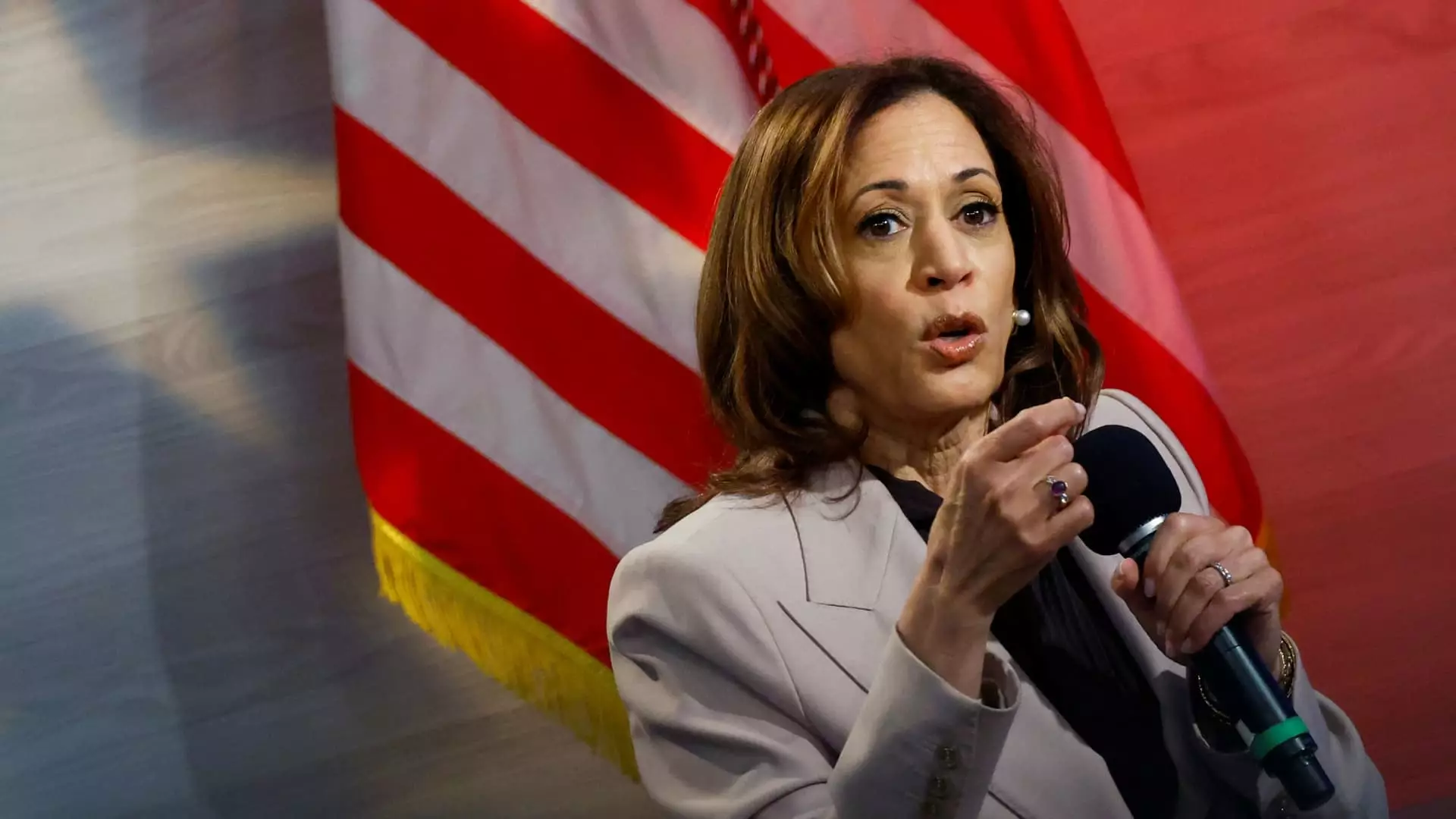In a politically charged environment, Vice President Kamala Harris is keenly aware of the shifting allegiances among young Black men, a demographic once seen as a steadfast support base for the Democratic Party. In a recent discussion with representatives from the National Association of Black Journalists, Harris emphasized the importance of not taking their vote for granted. “I’m working to earn the vote, not assuming I’m going to have it because I am Black,” she articulated, framing her approach as one of engagement rather than entitlement. With the latest NAACP poll indicating that over 25% of Black men under 50 now lean towards supporting Donald Trump, Harris’s acknowledgment of this vulnerability is both strategic and essential.
Pursuing Economic Solutions
Harris’s strategy to regain the trust of young Black voters hinges on tangible economic proposals designed to address their specific needs. She recently embarked on what she calls an “economic opportunity tour” aimed directly at understanding and mitigating the challenges faced by Black men. One of her primary campaign focuses is enhancing access to capital for aspiring entrepreneurs within the community. Harris pointed out that many talented individuals from these communities possess remarkable ideas and aspirations but often lack the critical financial resources needed to bring them to fruition. Her initiative includes expanding funding for community banks and introducing a proposed $50,000 small business tax deduction.
This focus on entrepreneurship resonates particularly well, as it not only empowers individuals but also stimulates broader economic growth. By ensuring that financial resources are made available, Harris aspires to dismantle systemic barriers that have historically blocked Black entrepreneurs from achieving success. In her view, when the economic situation for Black men improves, it creates a ripple effect that benefits the entire community.
Among her economic proposals, Harris has highlighted the elimination of medical debt from credit scores as a transformative step toward leveling the playing field for Black Americans. These initiatives align with her broader vision of addressing historic disparities that have persisted for generations within Black communities. Not only do these proposals offer immediate financial relief, but they also shift the long-term economic narrative for young Black men who have been disproportionately affected by these challenges.
The current economic landscape, marked by high inflation and rising costs of living, presents a formidable backdrop for any candidate. Harris’s focus on economic relief does not simply aim to win votes, but also seeks to provide real solutions to issues of critical concern for voters. The economic apprehensions that voters express are often a reflection of their lived realities; thus, Harris’s economic proposals are a deliberate attempt to resonate with these concerns.
As young Black men inch closer to supporting a Republican candidate in increasing numbers, the desire to reclaim the narrative is palpable within Harris’s campaign. Trump’s earlier remarks about Harris and the view of her as merely a “DEI hire” elicited outrage, showcasing the need for political candidates to respect and genuinely address the narratives within marginalized communities. Harris’s response to Trump’s remarks portrays her commitment to countering divisiveness with respect and understanding, painting a stark contrast to his approach.
In light of Trump’s relative popularity among Black voters—a notable divergence from previous election trends—it’s crucial for the Democratic Party to not only counteract narratives but also to actively engage and listen to the concerns of this demographic. Harris’s focus on connecting intimately with young Black men not only targets their economic upliftment but also advocates for a political venue where their voices are valid and influential.
The upcoming election cycle signals a pivotal juncture for the Democratic Party, particularly in its outreach and engagement with young Black men. Harris’s initiatives are a step towards rebuilding trust and fostering a sense of economic empowerment among a demographic that feels increasingly overlooked. By concentrating on economic disparities and addressing historical injustices, her campaign not only seeks to secure votes but also strives to create a more inclusive and equitable economic landscape. If successful, this could redefine the political affiliations and aspirations of young Black men, ultimately enhancing their agency within the democratic process. Such efforts may not only safeguard the future of the Democratic Party but also contribute meaningfully to the socioeconomic fabric of the communities that have traditionally supported them.


Leave a Reply